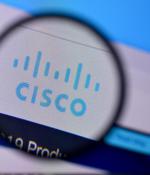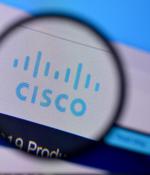Security News

A distributed denial-of-service cyber-attack today took down Ukrainian defense military websites - and at least two of the nation's biggest banks were knocked offline, too. Ukraine's Ministry of Defense website is still unavailable at time of publication.

Vodafone Portugal suffered a cyberattack causing country-wide service outages, including the disruption of 4G/5G data networks, SMS texts, and television services. The cyberattack began last night with Vodafone calling the incident "a deliberate and malicious attack intended to cause damage."

The wide-ranging adoption of cloud facilities and the subsequent mushrooming of organizations' networks, combined with the recent migration to remote work, had the direct consequence of a massive expansion of organizations' attack surface and led to a growing number of blind spots in connected architectures. The unforeseen results of this expanded and attack surface with fragmented monitoring has been a marked increase in the number of successful cyber-attacks, most notoriously, ransomware, but covering a range of other types of attacks as well.

Critical security vulnerabilities in Cisco's Small Business RV Series routers could allow privilege escalation, remote code execution with root privileges on the devices and more. The critical bugs are part of 15 total vulnerabilities affecting the RV product line that Cisco disclosed this week.

Critical security vulnerabilities in Cisco's Small Business RV Series routers could allow privilege escalation, remote code execution with root privileges on the devices and more. The critical bugs are part of 15 total vulnerabilities affecting the RV product line that Cisco disclosed this week.

The Greek data protection authority has imposed fines of 5,850,000 EUR to COSMOTE and 3,250,000 EUR to OTE, for leaking sensitive customer communication due to a cyberattack. As the agency says in an announcement, COSMOTE infringed at least eight articles of the GDPR, including violating its duty to inform affected customers of the true impact of the incident.

The Federal Bureau of Investigation warned today that threat actors could potentially target the February 2022 Beijing Winter Olympics and March 2022 Paralympics. "The FBI to date is not aware of any specific cyber threat against the Olympics, but encourages partners to remain vigilant and maintain best practices in their network and digital environments," the US security service said in a private industry notification issued on Tuesday.

The UK's National Cyber Security Centre is urging organizations to bolster security and prepare for a potential wave of destructive cyberattacks after recent breaches of Ukrainian entities. The NCSC openly warns that Russian state-sponsored threat actors will likely conduct the attacks and reminds of the damage done in previous destructive cyberattacks, like NotPetya in 2017 and the GRU campaign against Georgia in 2019.

Cyberattacks can impact any organization, big or small. Large enterprises are often more tempting targets due to the vast amount of lucrative data they hold.

A massive Minecraft tournament styled after the Netflix blockbuster Squid Game apparently inspired a distributed denial of service attack that took down the sole internet service provider in Andorra. Confirmed: Internet disruption registered on #Andorra Telecom on Saturday evening; the incident is attributed by the state telco to a DDoS attack targeting the high-stakes #SquidCraftGames Minecraft Twitch competition, resulting in the elimination of Team Andorra pic.